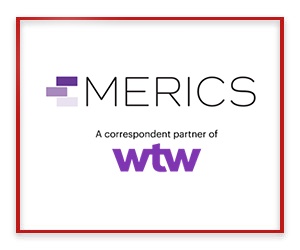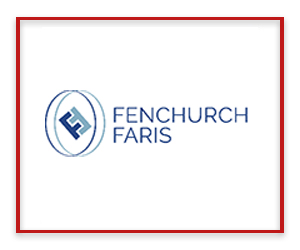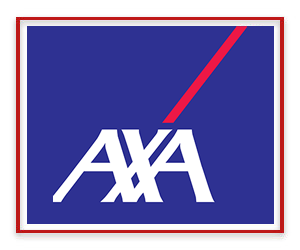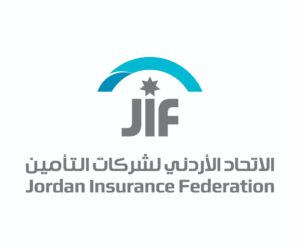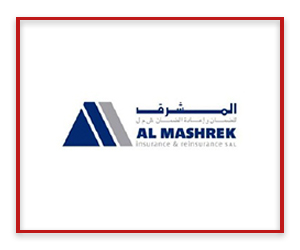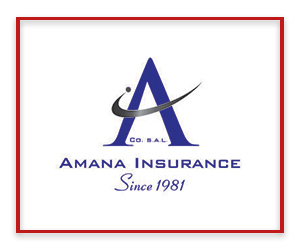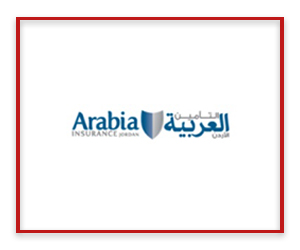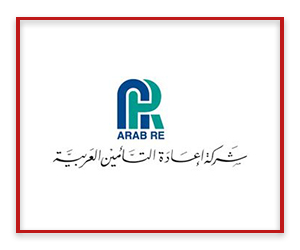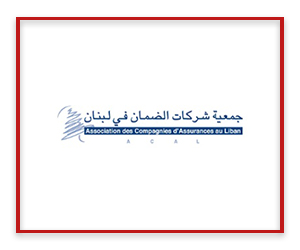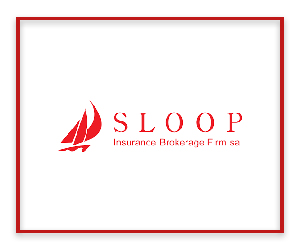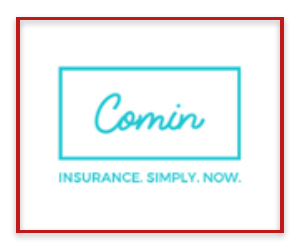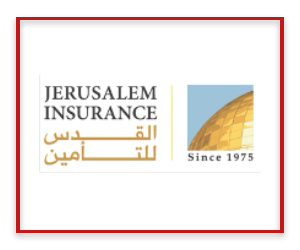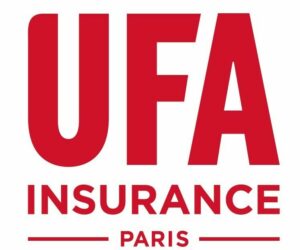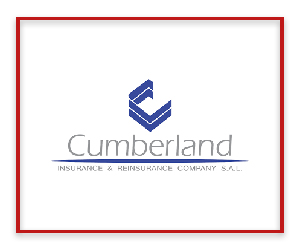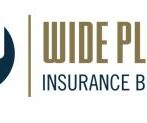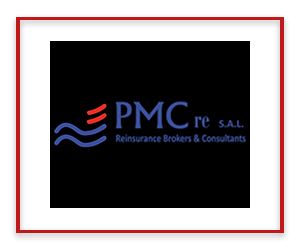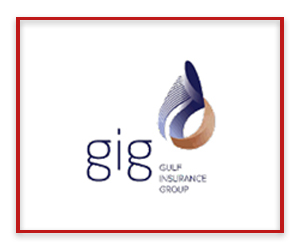عامر ديّة.. فلنُحصّن الموجود
في الندوة الخامسة التي أقامها الإتحاد العام العربي للتأمين (GAIF) والتي كان موضوعها “المشاكل الجيوسياسية وآفاق التطوّر”، كان من بين الذين شاركوا فيها، السيد عامر دية، كبير المسؤولين التنفيذيين في شركة Ninety للتأمين وإعادة التأمين في منطقة الـMENA الذي خصّ مجلة “تأمين ومصارف” بمقابلة حصرية.
ومن تابع الندوة التي استمرّت ساعتَيْن ونيّف، لاحظ أن السيد عامر دية كان شديد الإهتمام بموضوع إنشاء شركة إعادة عربية ضخمة برأسمال مشترك بين القطاعين الخاص والعام يصل إلى 3 مليارات دولار. لكن ما لفت أنّه لم يكن متحمّساً كثيراً لإنشاء هذه الشركة المقترحة والتي “تشبه الحلم الذي يصعب تحقيقه”، وهي العبارة التي أعاد تردادها في المقابلة التي أجريناها معه وننشرها باللغة الإنكليزية، علمًا أنّه أوضح أنّه لا يعارض قيام مثل هذه الشركة.
لكن لماذا لم يُبْدِ حماسة للفكرة؟
لأسباب ثلاثة ذكرها في سياق المقابلة.. أوّلها، وجود شركات تأمين عدّة، الواحدة تستنسخ الأخرى، وقلّة منها تماشي التطوّر المطلوب، الأمر الذي يعرقل مهمة إنشاء مثل هذه الشركة. ثانياً، إن معظم محافظ الشركات ترتكز، بشكل عام، على برنامجَيْن: السيارات والاستشفاء، ما يجعل محفظة الـ MENA محدودة العائدات، في حين أن المطلوب إعادة تغطية برامج أخرى ضرورية، فضلاً عن عدم إعتماد تلك الشركات على “الرقمنة”، بالمفهوم الكامل للكلمة. ثالثاً، تدنّي الثقة بتجربة شركات الإعادة في منطقة الـ MENA إذ أنّ هذه التجارب لم تكن مشجعة بدليل المصير الذي وصلت إليه واحدة من أكبر تلك الشركات ونعني بها ARIG التي توقّفت عن العمل، وهذا مؤسف جداً.
فلماذا، إذًا، إنشاء شركة إعادة جديدة في وقت كان يمكن دعم شركات موجودة وتقويتها، يقول السيد ديّة، مضيفًا: “برأيي، أن هذا الإقتراح ليس الحل المطلوب في أسواق المنطقة. المطلوب خطة عمل مدروسة تواكب الزمن لأن هنالك الكثير من الأمور التي تحتاج إلى متابعة وعلاج”. سألناه عن تجربته في التعامل مع منطقة الـMENA عبر شركة Ninety، وتحديداً خلال العام 2020، أجابنا قائلاً: “لقد إلتحقت بهذه الشركة في نهاية كانون الأول الماضيولا زلت في أوّل الطريق، علمًا أنّه من دون الرقمنة لم يكن هنالك مجال للعمل في قطاعات عدة ولا سيما القطاع التأميني. فضلاً أن Ninety ليست شركة تأمين أو إعادة بل شركة إبتكارات. نحن نساعد على تطوير العمل بطريقة مركّزة أكثر مع الزبائن وعلى الإبتكار. إن الموقع الإلكتروني للشركة www.ninety.com يضمّ أسماء الشركات الكبيرة التي نتعامل معها في مجال التأمين وإعادة التأمين. أمّا دوري فينحصر في إدخال Ninety في المنطقة ومساعدة أسواق التأمين على الإبتكار ومحاولة التزوّد بكل جديد تكنولوجياً قبل الدخول في السباق نحو إعتماد التكنولوجيا الكاملة”.
سألناه إذا كان إنشاء شركة إعادة عربية ضخمة يمكنها أن تنافس شركات إعادة عالميّة، أجاب: “أعتقد أن زملائي في الندوة إقترحوا إنشاء هذه الشركة الضخمة لإعادة التأمين كحلّ دائم كي تتولى تغطيات الإعادة في المنطقة وتخدم الداخل. ولكن للمرّة الثانية أقول أن الفكرة موجودة منذ عقود، ومع أنني لا أعارض ولكنني أعتقد أن الشركات العربية تحتاج إلى إعادة هيكلة لتتمكّن من القيام بمثل هذا الإستثمار، وإلا لماذا شركة كبيرة مثل ARIG قرّرت الانسحاب؟ إن الإستثمار في الإعادة يحتاج إلى التنبّه من المخاطر الكبيرة في المدى البعيد وإستقطاب المواهب الفنية والرقمية”.
عن موضوع Covid-19 وتداعيات هذا الوباء على المنطقة، قال: “إن هذا الوباء دَفَع نحو مواكبة التطوّر والإبتكارات، خصوصاً في المجال التكنولوجي، وهذا ما تأمله Ninety. إنّ للتأمين مهمّة إجتماعية ضرورية، ومن هنا تخصيص Ninety 90% من أرباحها لصالح المساعدات الإنسانية. ننتظر أن تكون 2021 عام الإبتكرات البنّاءة لأن معظم المتعاونين بالشأن التأميني يبحثون عن حلول لتطوير العمل وتأمينه للزبائن”.
أخيراً سألناه: كيف ترى شركات التأمين في منطقة الـMENA وهل لا يزال الخليج محط أنظار شركات إعادة التأمين الدولية؟ أجاب: “مع الأسف شركات الـ MENA لا تملك أفق التعاون المشترك ولذلك لا تزال بحاجة إلى العوامل التالية: رؤية صناعية مشتركة ودائمة، تنويع البرامج والخدمات، تقوية الشركات ذات المحافظ المحدودة والإعتماد على فريق تقني في العمل. وإلى ذلك، فإن منطقة الخليج تبقى المنطقة المهمة بالنسبة لشركات إعادة خارجية رغم أنّها فقدت جزءاً من وهجها بسبب العائدات البترولية المتراجعة والإستثمارات التي بقيت محدودة، يضاف إلى ذلك الإرباك الذي خلّفه كوفيد-19 على الوضع الإقتصادي وأوقف النمو، وهذه المشكلة أصابت معظم الدول المتقدّمة”.
_______________________________________
Amer Daya, Senior Market Executive in the MENA region for Ninety who was present in the 5th webinar of GAIF, in his exclusive interview for Ta’amine W Massaref magazine talked about the building of a huge Arabic reinsurance company a subject debated in the webinar.
We have already informed our readers in the previous page of our introduction in Arabic about the main points Mr Amer Daya talked about in this interview.
:Amer Daya
Excessive competition and eroding capital investment are the major problems in the MENA region
The Gulf region remains an interest for foreign operators
Q: You were lately in the 5th Gaif webinar around the insurance situation in the arab world: The geopolitical problems and the development horizons. This was very interesting for all people that watched it. Do you think that the ideas that was suggested like building a huge arabic reinsurance company can be realized?

A: Creating a giant Arab reinsurance company has been an industry dream since decades but the dream never really became a reality. Although I don’t disagree that a substantial local reinsurance entity can add value to the MENA region but this in my opinion is not what the market should address first and foremost. The main acute problems in MENA are:
1- Abundance of providers that copycat each other in mission statements and limited corporate vision creating excessive competition, and eroding capital investment.
2- Portfolios that are dependent on two mandatory lines (Motor & Medical) hence inviting result volatility, suffocating diversification, choking technical exposure, narrowing reinsurance choices and partnerships and limiting solutions.
3- Some of MENA’s success stories in reinsurance have unfortunately folded and gone into run off (ARIG) is one unfortunate great example. Why do the industry needs to fold an existing established entity in order to start a new one. If needed Restructure the existing one, strengthen it and give it the necessary regulatory licenses and tools. Seeking to crown the markets with a giant Reinsurance company is in my opinion not the ultimate solution for the market’s acute problems. The markets have to get their act in order, agree a collective vision and a convincing modus operandi before investors can be invited to risk $billions in creating a new reinsurance entity.Compulsory cessions, and mandatory treaties perhaps will not interest the savvy investors of today. Investors need to see a well thought out business plan that walks with the times. Compulsory cessions of the exact same industry will simply move the problem from the cedants’ books on to the reinsurer.This idea existed for decades but its execution requires the industry to get its house in order first. There is a lot of homework to be done.

Q: As you are the Senior Market Executive in the MENA region for Ninety, can we know more about your mission you are accomplishing for Ninety in the MENA region. What did you bring for Ninety during the year 2020?
A: I joined Ninety which is an insurance innovation consultancy by the end of December 2020. My joining Ninety is a realization that insurance has truly turned a corner following Covid-19 and technology is going to take the industry by storm. Ninety is not an insurer nor a reinsurer but an innovator. We help providers in the sectors do things better, in a much more client centric way, and assist them innovate. Our award winning book on www.ninety.com is full of testimonials from major industry names in both the insurance and reinsurance industries. My mission is simply to introduce Ninety into the region and assist MENA markets to innovate and walk forward before they run in the technology race.
Q: Has Ninety a strong position in the MENA region? Can we know more about its portfolio in this region and were did Ninety stand actually in the world knowing the strong concurrence in the reinsurance world especially the company Lloyds?
A: I am taking Ninety into the region. Until the beginning of 2021 Ninety’s portfolio had no thumbprint in the region and their business has been concentrated in Europe, North America and other International advanced markets.
Q: Do you think that a big arabic reinsurance company you talked about in the 5th webinar of the GAIF can have a competition with other foreign insurance companies? Moreover can it polarize the portfolios of the companies of the MENA countries?
A: I think my fellow panelists suggested the giant reinsurance company as a sustainable solution for the industry to keep its premiums in the region, and serve the cedants within. Again I say the idea has existed for decades and whilst I don’t disagree, I don’t think the Arab insurance industry today has the right infrastructure to support such an investment otherwise why have companies like ARIG folded. Investment in reinsurance is way longer term, and must follow clear risk appetite, strategy and attract underwriting and technical talents.
Q: What were the effects of Covid-19 o Ninety and what are the expectations for the year 2021?
A: Ninety is an innovation consultancy and whilst COVID has had adverse effects on most operators in the market we find that Covid-19 has accelerated innovation and has driven the technology fever in the insurance industry. Moreover Ninety, believes that insurance has an important social mission hence why Ninety gives away 90 % of its profits to charity. 2021 is expected to be the year in which innovation peaks as most providers seek solutions to better their promise and delivery to clients.
Q: During the communications you made in your work, how do you describe the situation of the insurance companies in the MENA region. Does the Gulf region still interests the foreign insurance companies?
A: Insurers in the MENA region remain fragmented, and lack a collective industry horizon. In summary the industry is still short of the following:
1- Collective and sustainable industry vision.
2- Diversification of products and services in those markets.
3- Consolidation of modest capacities and pooling resources.
4- Building and developing technical underwriting teams.
E- Regulatory standardization and cross border authorities. The Gulf region remains of interest for foreign operators but only with selected operators. The first tier reinsurance market is losing interest and local markets are finding themselves resorting to second and third tier markets for support. The Gulf region has lost some of its luster. Oil revenues have deteriorated and investments became flat. Moreover COVID-19 locked down their economies and strangled their growth. We saw world class contractors fold, major projects freeze, events cancelled etc etc. The reason why foreign companies did not takeover swaths of the Gulf market is because the ROE is no longer investment or effort provoking and until the industry changes its old ways this is not going to change. So let’s ask ourselves this question: If large solid well established reinsurers are shying away from the market they have practised in for years would fresh investors consider risking funds in supporting a giant local reinsurance company? I thinksuch a question is worth seekinganswers for.
Q: Can we have your Curriculaem Vitae?
A: Amer has accumulated some 40 years rich and diverse insurance industry experience in the Life, Non Life, Insurance and Reinsurance, Conventional and Takaful sectors within the GCC, UK, and Portuguese markets. For 13 years within his comprehensive journey he was chief executive officer of public listed insurance companies within KSA and UAE. Amer is a 1995 FPC graduate from the Chartered Insurance Industry, and a 1981 BBA graduate from the American University of Beirut. Amer is an insurance visionary, and has built a valuable network of clients, industry partners and suppliers in every market he has practiced in. He is a strong advocate of how the industry should change its old ways to deliver and retain better customer satisfaction, create a safer and more sustainable environment for our future generations.






